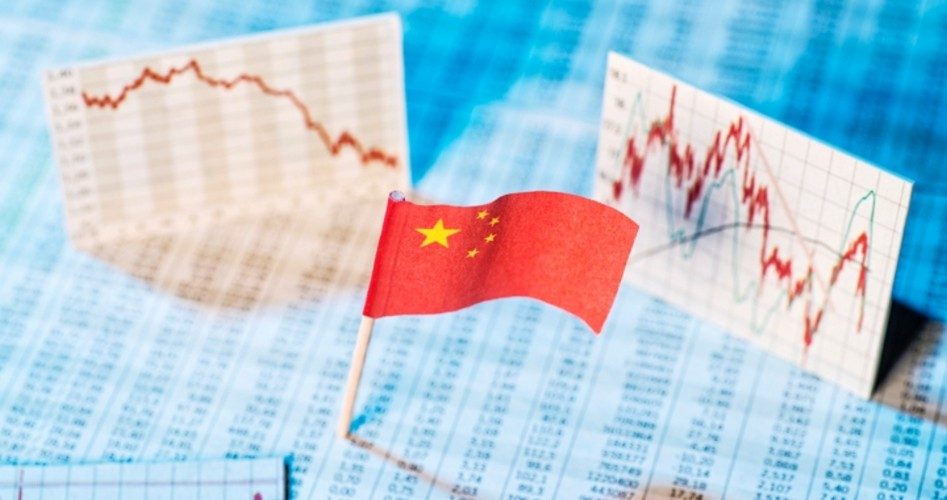
Thanks to efforts by the Chinese communist government to rein in the country’s horrendous national debt (300 percent of the country’s total annual output of goods and services), the Chinese economy was already slowing. According to “official” numbers released earlier this week (always questionable if not outright false), the economy grew by 6.5 percent in the third quarter on an annualized basis, down from 6.7 percent in the second quarter, and down from 12.2 percent just eight years ago.
The panic among top Chinese communist officials is palpable: Central Bank Chief Yi Gang described the state of the command economy as “moving forward” while dismissing declines in the stock markets as not reflective of the real state of China’s economy.
Most investors, on the other hand, consider the stock market as a forward-looking tool as bets are placed based on anticipated future performance of the companies behind the stocks being traded. For the record, the Shanghai Composite (made up of all the stocks traded on the Shanghai stock exchange) has lost nearly 23 percent so far this year, while shares traded on the smaller, tech-heavy Shenzhen stock exchange are off by a third.
Don’t pay any attention to those numbers, say top communist officials. Guo Shuqing, the chairman of the country’s banking regulatory commission, urged investors on Thursday to ignore the recent “abnormal fluctuations” in the Chinese stock markets and instead focus on the economy and its “stable financial system.” Vice Premier Liu He, China’s economic “czar,” called for “confidence” in China’s economic outlook, claiming that the “psychological impact” on investors “is bigger than the actual impact.” He even suggested that the sharp declines in stock prices “represent a buying opportunity” for the millions of Chinese citizens with investments in stocks.
Peddle that canard to those Chinese retail investors who have essentially given up trading stocks altogether: Daily trading volume has plummeted by 90 percent since the 2015 market high.
Real numbers, based on electricity consumption and other more reliable measures of economic performance, show an economy performing somewhere between the two stats: an economy that is growing by more than six percent a year, or one that is shrinking by a third.
Of course, those communist officials know that they must keep China’s 1.4 billion people happy or, as Chao Deng, writing in the Wall Street Journal, express it: “Keeping the economy at a steady and relatively fast pace is seen as crucial for the Communist Party to maintain social stability.”
Trump’s tariffs, as small as they are, are adding to the communists’ woes. At the moment, a 10-percent tariff is being levied on less than half the goods China exports into the United States. But Trump still has in his hand the ability to raise that to 25 percent by the end of the year if the Chinese don’t stop what Trump deemed unfair trade practices. In addition, he has another card to play: putting tariffs on the remaining $260 billion of those exports.
Trump’s big three issues with the Chinese include its deliberate theft of American intellectual property, its subsidizing of critical industries in order to weaken American manufacturers of steel and aluminum, and its blackmailing of American companies into giving up to the communists their secret technologies in order to gain access to the huge Chinese market. The first two meetings scheduled to address these issues failed, while the third one was cancelled. Another one is scheduled for late November, by which time China’s real economy will likely have forced the recalcitrant communist dictators running that country to come to the table or face a mounting existential threat to their control of the country.
Already, auto sales in China are off significantly, while consumer spending has shriveled. And American business owners are finding other sources to satisfy their needs for materials and product assembly.
All of which has forced Kevin Lau, an economist at the investment bank Daiwa Capital Markets, to declare that, unless those communist officials running the country negotiate with President Trump very soon, “the worst is yet to come.”
Image: gopixa via iStock / Getty Images Plus
An Ivy League graduate and former investment advisor, Bob is a regular contributor to The New American magazine and blogs frequently at LightFromTheRight.com, primarily on economics and politics. He can be reached at [email protected].
Related article:



